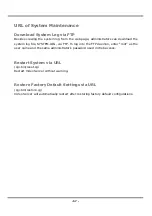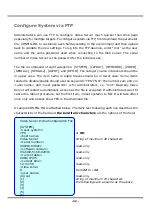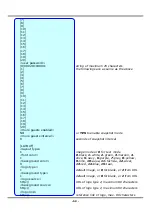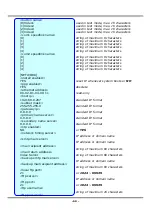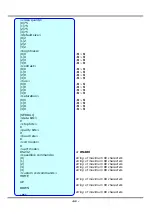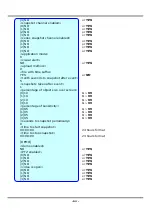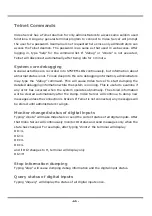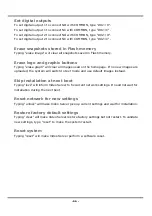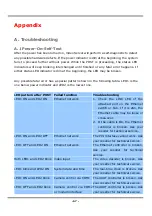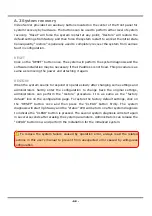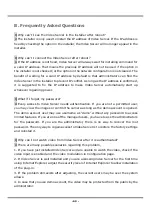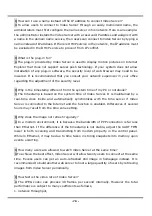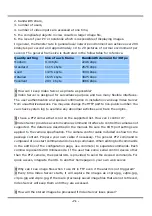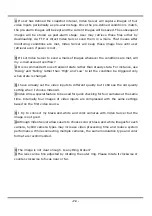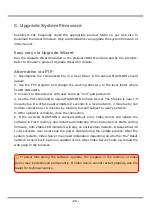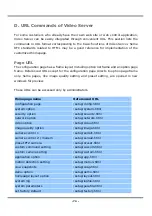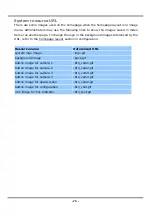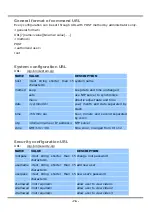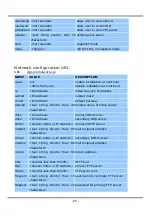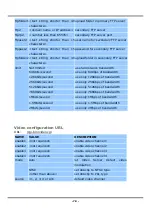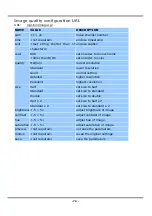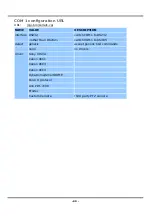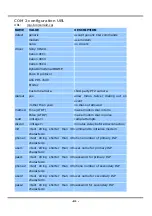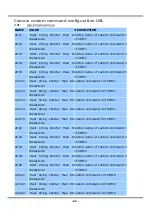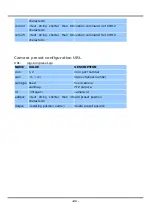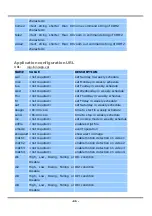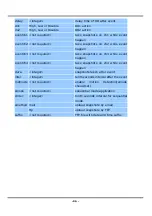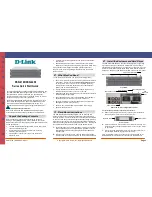
- 71 -
2. bandwidth share,
3. number of users,
4. number of video inputs are accessed at one time,
5. the complicated objects in view results in larger image file,
6. the level of your PC or notebook which is responsible of displaying images.
In general, the transfer rate in general local network environment can achieve over 200
kilobytes per second and approximately 10 to 20 pictures of normal environment per
second. The general frame size is illustrated in the follow table for reference.
Quality setting
Size of each frame
Bandwidth demand for 30fps
Medium
9.3 kbyte
2246 kbps
Standard
11.15 kbyte
2676 kbps
Good
13.76 kbyte
3303 kbps
Detailed
16.35 kbyte
3925 kbps
Excellent
20.3 kbyte
4886 kbps
Q How can I keep Video Server as private as possible?
A Video Server is designed for surveillance purpose and has many flexible interfaces.
The user authentication and special confirmation in installation can keep Video Server
from unauthorized access. You may also change the HTTP port to non-public number. You
can check system log to examine any abnormal activities and trace the origins.
Q I have a PTZ camera that is not on the supported list. How can I control it?
A Video Server provides a custom camera command interface to control the cameras not
supported. The details are described in the manual. Be sure the COM port settings are
applied to the camera specification. The camera control cable included is shown in the
package content. Prepare your own cable if necessary. The general PTZ command is
composed of one start command and one stop command. When editing both commands
in the edit box of the configuration page, use comma(s) to separate commands. Each
comma represents 200 milliseconds. If the user has some serial control device other
than the PTZ camera, the special URL is provided to send the desired commands. For
quick access, integrate the URL to another homepage on your own web server.
Q Why can I see image files when I use dir in FTP even if the alarm is not triggered?
A Every time Video Server starts, it will capture the images as v1pre.jpg, v2pre.jpg,
v3pre.jpg and v4pre.jpg. If there are previously saved image files that are not retrieved,
Video Server will keep them until they are accessed.
Q How will the stored images be processed if Video Server loses power?
Summary of Contents for IPVS4
Page 1: ......

